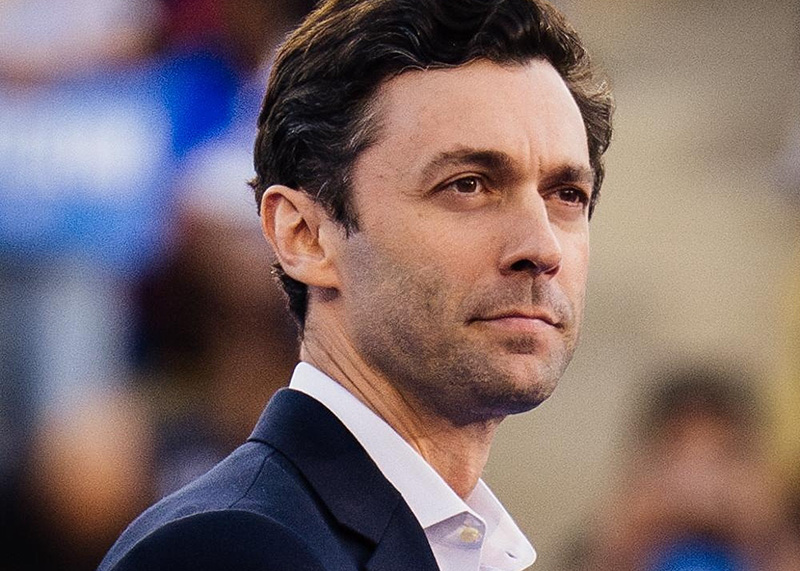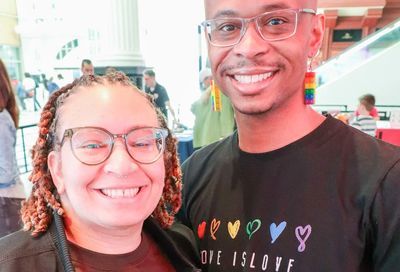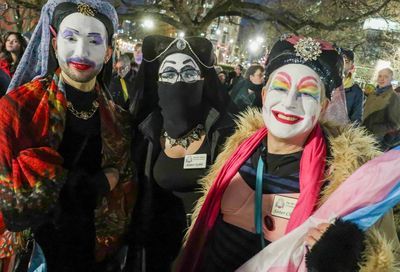Maryland House passes ban on youth conversion therapy
Bill outlawing sexual orientation change efforts now heads to Republican Gov. Larry Hogan for his signature

On Wednesday, the Maryland House of Delegates voted 95-27 to approve a bill banning the practice of conversion therapy on youth.
The bill prohibits licensed medical professionals from engaging in practices or administering treatments designed to change a youth’s sexual orientation or gender identity, and threatens them with disciplinary measures, including the possible loss of their license to practice, if they violate the law. The law does not apply to religious groups, or licensed therapists who engage in the therapy while acting as a religious advisor, and not in a professional capacity.
The bill previously passed the State Senate by an overwhelming margin, and now heads to the desk of Gov. Larry Hogan for his signature into law. A spokeswoman for Hogan’s office said he plans to sign the bill because he believes it is the right thing to do.
“The Maryland General Assembly has chosen to protect our youth by joining the growing list of states banning conversion therapy,” Mark Procopio, the executive director of FreeState Justice, said in a statement. “These widely discredited and harmful practices have no place here. Governor Hogan’s signature on this legislation will send a message to LGBTQ youth across our state that they are perfect just the way they are.”
The bill gained bipartisan support in the House, while most Senate Republican voted against the measure. In a surprise move, Del. Meagan Simonaire (R-Anne Arundel Co.) gave a speech expressing her support for the bill. In her speech, Simonaire revealed that her parents had sought out conversion therapy for her — but never forced her to submit to it — after she revealed she was bisexual.
Last week, when the Senate approved the bill, her father, Sen. Bryan Simonaire (R-Anne Arundel Co.) voted against it, arguing in a floor speech that parents and families should have the right to subject their children to some forms of conversion therapy that are not harmful if it’s done in a “loving” way.
The House and Senate versions of the bill, which were identical, were sponsored by Del. Bonnie Cullison (D-Montgomery Co.) and Sen. Rich Madaleno (D-Montgomery Co.), each of who praised their colleagues for approving the ban.
“No minor should be forced to go through a practice that clearly every reputable health care organization has dismissed as being both ineffective and unethical,” Madaleno said in a statement. “All it does is create more harm and more anxiety for the young person. I am pleased, and frankly, relieved that this bill has passed: relieved, because this bill will help save so many young people’s lives.”
“I am so grateful and happy to have been a part of this affirmation of our LBGTQ youth,” Cullison said in a statement. “Today, with passage of SB 1028, Maryland has made a strong statement that these young people are not broken — they are beautiful! We owe them our support and our protection under the law.”
Most major medical and mental health organizations say there is no credible evidence that conversion therapy can change a person’s sexual orientation or gender identity. Rather, research has shown that subjecting youth to conversion therapy can lead to depression, decreased self-esteem, substance abuse, and suicidal ideation.
According to an analysis by the Williams Institute at the UCLA School of Law, an estimated 20,000 LGBTQ minors in states without bans on the practice will be subjected to conversion therapy by a licensed healthcare professional if state officials fail to act. Thus far, 11 states have statewide laws or insurance regulations designed to protect LGBTQ youth from conversion therapy. Several municipalities in various states have also followed suit.
“All children deserve to live their lives authentically and should never be subjected to the abusive practice of so-called conversion therapy,” said JoDee Winterhof, the senior vice president for policy and political affairs at the Human Rights Campaign, which was part of the coalition pushing for the passage of a ban.
“This dangerous and inhumane practice has no basis in science and is uniformly rejected by every major mental health organization in the country,” she added. “We thank the state legislators who voted to protect LGBTQ youth and now call on Governor Hogan to sign this crucially important legislation.”
Support Metro Weekly’s Journalism
These are challenging times for news organizations. And yet it’s crucial we stay active and provide vital resources and information to both our local readers and the world. So won’t you please take a moment and consider supporting Metro Weekly with a membership? For as little as $5 a month, you can help ensure Metro Weekly magazine and MetroWeekly.com remain free, viable resources as we provide the best, most diverse, culturally-resonant LGBTQ coverage in both the D.C. region and around the world. Memberships come with exclusive perks and discounts, your own personal digital delivery of each week’s magazine (and an archive), access to our Member's Lounge when it launches this fall, and exclusive members-only items like Metro Weekly Membership Mugs and Tote Bags! Check out all our membership levels here and please join us today!























You must be logged in to post a comment.